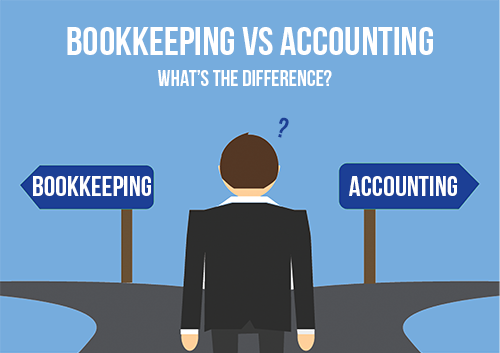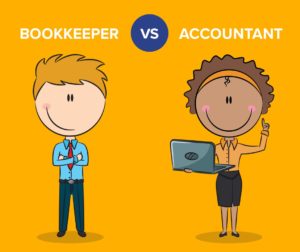

Comparing bookkeeping and accounting
Comparing Bookkeeping and Accounting: Is Bookkeeping and Accounting the Same Thing?
When it comes to managing a business’s financials, bookkeeping and accounting are two terms that are often used interchangeably. While they are closely related and both deal with the financial aspects of a company, bookkeeping and accounting are not the same thing. Each serves a distinct purpose in the financial health of a business, and understanding the differences between the two can help business owners make better decisions and manage their operations more efficiently.
What is Bookkeeping?
Key Tasks of a Bookkeeper:
- Recording financial transactions – including sales, purchases, receipts, and payments.
- Maintaining ledgers – organizing and categorizing transactions.
- Reconciling accounts – ensuring that bank statements match the company’s financial records.
- Producing invoices and tracking receivables and payables.
- Handling payroll for employees.
Bookkeeping focuses on data entry and ensuring that financial information is accurately tracked. A bookkeeper uses specialized software or manual systems to organize this data, which is later used by accountants to create reports and analyze business performance.
What is Accounting?
Accounting goes a step beyond bookkeeping. It involves analyzing, interpreting, and summarizing the financial data that bookkeepers maintain. The information produced by accountants helps businesses make strategic financial decisions, prepare for taxes, and comply with regulations.
Key Tasks of an Accountant:
- Analyzing financial data to assess the company’s financial health.
- Preparing financial statements – including balance sheets, income statements, and cash flow statements.
- Filing tax returns and ensuring compliance with tax laws.
- Advising on financial strategies based on financial analysis.
Accounting is more complex and requires a higher level of expertise than bookkeeping. Accountants provide insights and strategic advice based on the numbers generated through bookkeeping.
Bookkeeping vs. Accounting: A Quick Comparison
| Aspect | Bookkeeping | Accounting |
|---|---|---|
| Primary Focus | Recording day-to-day financial transactions | Analyzing and interpreting financial data |
| Tasks | Data entry, ledgers, bank reconciliation | Financial statements, tax filing, auditing |
| Skill Level | Basic financial knowledge | Higher education and professional certification |
| End Goal | Maintaining accurate records | Providing financial insight and strategy |
| Tools | Spreadsheets, bookkeeping software | Accounting software, financial analysis tools |
How They Work Together
While bookkeeping and accounting serve different functions, they are closely intertwined. Bookkeeping lays the groundwork by ensuring that all financial data is properly recorded. Accountants then take that data to analyze and produce financial reports, advise on tax planning, and assist in strategic decision-making.
Accountants rely on accurate bookkeeping to ensure they have dependable data for their analysis and reports. Conversely, without accounting, businesses would have trouble interpreting their financial records and making informed decisions about their future.
Do You Need Both?
For small businesses or startups, a bookkeeper may be sufficient in the early stages. However, as the business grows, the need for accounting expertise becomes crucial, particularly when dealing with taxes, audits, and long-term financial planning.
Many businesses opt for a hybrid approach, where bookkeeping is managed in-house or through software, while accounting tasks such as tax preparation or financial consulting are outsourced to professionals.
Final Thoughts: Are Bookkeeping and Accounting the Same Thing?
In summary, bookkeeping and accounting are not the same. While both are essential components of a business’s financial management, they serve different purposes. Bookkeeping is about maintaining accurate financial records, while accounting focuses on interpreting those records to provide financial insight and strategy.
Understanding the distinction between the two can help business owners decide what level of financial management is required for their specific needs and how to allocate resources for both accurate record-keeping and strategic financial advice.
For more information visit this site: https://www.mca.gov.in
FAQs on Comparing Bookkeeping and Accounting
Related Topics
Bookkeeping for lodging establishments
For further details visit:В https://vibrantfinserv.com/service-detail-25.php
Contact:В В В В 8130555124, 8130045124
Whatsapp:В В https://wa.me/918130555124
Mail ID:В В В В В В operations@vibrantfinserv.com
Web Link:В В В https://vibrantfinserv.com
FB Link:В В В В В В https://fb.me/vibrantfinserv
Insta Link:В В https://www.instagram.com/vibrantfinserv2/
Twitter:В В В В В В https://twitter.com/VibrantFinserv
Linkedin:В В В https://www.linkedin.com/in/vibrant-finserv-62566a259/
